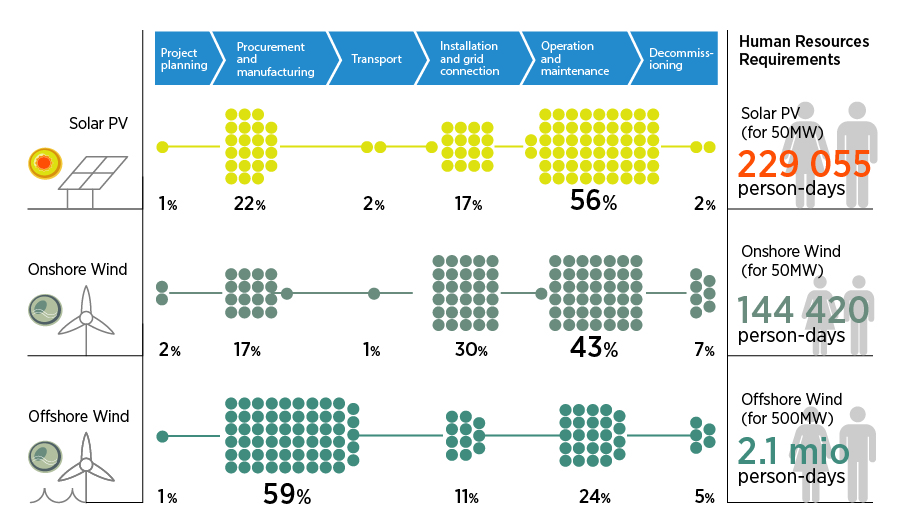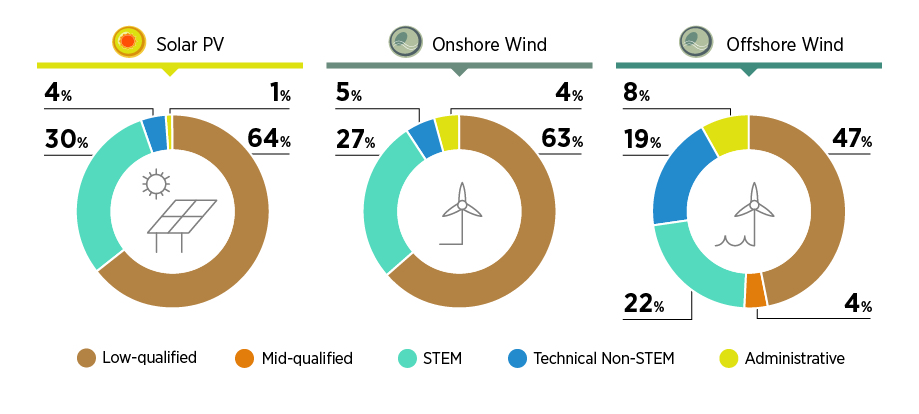
Skills And Occupational Groups
As the renewable energy workforce continues to expand, education and training along with reskilling and upskilling rises in importance. Policies and programmes should centre on vocational training, curricula, teacher training, information and communications technology (ICT), public-private partnerships, and recruitment of underrepresented groups such as women.
Employment requirements across the segments of the value chain for three renewable energy technologies Figure X illustrates the human resource requirements of segments of the value chain for solar photovoltaic (PV) plants and onshore and offshore wind farms.
- A large-scale 50 MW solar PV project provides a total of 230 000 person-days of employment along all segments of the PV value chain. The highest concentration is in operation and maintenance (O&M), which requires 56% of the total human resources, followed by manufacturing (22%), and construction and installation (17%).
- For a 50 MW onshore wind project, a total of 144 000 person-days is needed. In this case, again, O&M is the leading segment, accounting for 43% of the total employment, followed by construction and installation (30%), and manufacturing (17%).
- Similarly, the analysis for a 500 MW offshore wind farm yields a total of 2.1 million persondays of employment, with manufacturing and procurement representing the largest segment (59%). This is followed by O&M (24%) and installation and grid connection (11%).

Existing knowledge and skills can be leveraged to meet the occupational requirements of emerging jobs. The renewable energy sector offers employment prospects for people with a wide range of experiences and backgrounds, with many of the required skills typically available domestically. While there is a demand for professionals with training in fields such as science, technology, engineering and mathematics (STEM), as well as other highly qualified individuals (such as lawyers, logistics experts, marketing professionals, financial analysts, and experts in regulation and standardisation), most jobs (e.g., construction and factory work) do not require a university degree.
